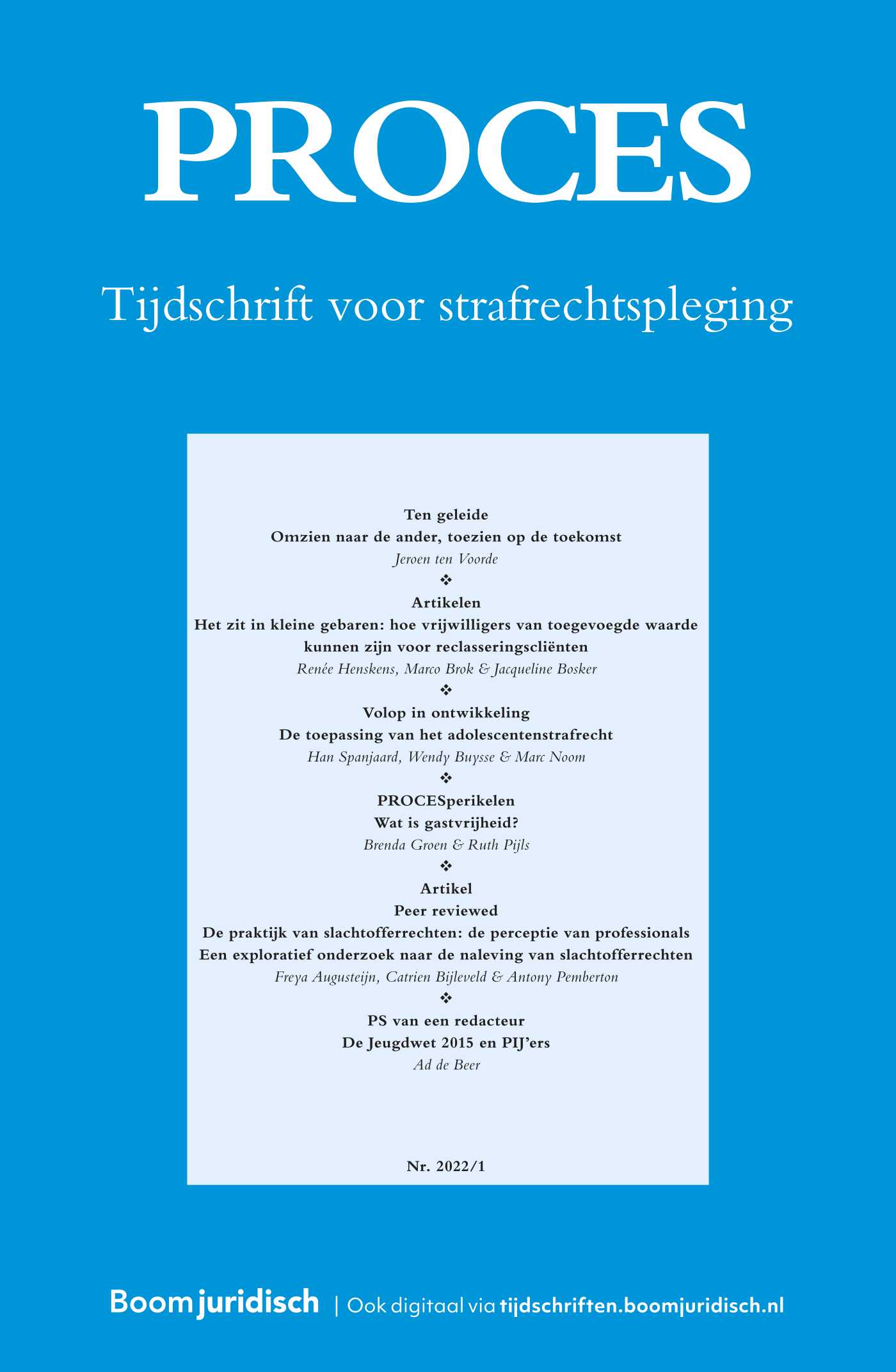|
In 2016 an independent review into a deadly ex-partner stalking case1xEenhoorn Commission. (2016). Conclusies en aanbevelingen: Onderzoeksrapport TweeSteden. identified a number of structural problems in the police’s approach to stalking cases. Police struggle to accurately and effectively assess and respond to stalking cases because of several reasons. Police often fail to identify stalking by focusing too much on single incidents, missing the pattern of behaviours that constitute stalking. Investigations also focus on the criminal offence of stalking, with police waiting to take action until a particular threshold is reached. There is a lack of knowledge about stalking in general and risk factors associated with stalking in particular, which means the victim’s safety can be at stake if adequate security measures are not taken. These findings led to the development of a new structured response to ex-partner stalking cases, which consists of an automated query, case screening and prioritisation with the SASH2xMcEwan, T. E., Strand, S., MacKenzie, R. D., & James, D. V. (2015). Screening Assessment for Stalking and Harassment (SASH)., case management together with partner agencies and improved training for police officers who are handling stalking cases. Victim safety must always be the first priority. Noten
|


PROCES
Meer op het gebied van Criminologie en veiligheid
Over dit tijdschriftMeld u zich hier aan voor de attendering op dit tijdschrift zodat u direct een mail ontvangt als er een nieuw digitaal nummer is verschenen en u de artikelen online kunt lezen.
| Ten geleide |
Selectieve wetgeving |
| Auteurs | Prof. dr. mr. Jeroen ten Voorde |
| Auteursinformatie |
| Artikel |
De uitdagingen in het effectief aanpakken van stalking |
| Trefwoorden | stalking, Politie, veiligheid, risicotaxatie |
| Auteurs | Bianca Voerman MsC. en Cleo Brandt MsC. |
| SamenvattingAuteursinformatie |
| Artikel |
Het leefklimaat in Nederlandse penitentiaire inrichtingen: de Life In Custody–studie |
| Trefwoorden | Quality of prison life, Imprisonment, Prison Climate Questionnaire, LIC-study |
| Auteurs | Dr. Hanneke Palmen, Dr. Anouk Bosma en Dr. Esther van Ginneken |
| SamenvattingAuteursinformatie |
|
The Life In Custody-study is a large scale, prospective panel study, aimed to examine the quality of prison life in The Netherlands. This paper describes the LIC-study by giving a detailed overview of the data collection procedure, and strategies to optimize response, and presents the first nationwide results on prison climate in The Netherlands. Results show that the data collection procedures utilized were successful in obtaining a high response rate (which was an exceptional 81%) and reaching a representative group of prisoners. Furthermore, results show that the perceptions of prison climate vary across prison regimes, and to a lesser extent across age groups and time spent in detention. |
| PROCESperikelen |
Het veiligheidsbeleid van de toekomst? Verslag van een kennismakingsreis door China |
| Auteurs | Michel Bravo |
| Auteursinformatie |
| Artikel |
De sluitingsbevoegdheid van artikel 13b Opiumwet: een mogelijk vervolgingsbeletsel voor het Openbaar Ministerie |
| Trefwoorden | Bestuurlijk sanctierecht, Bestuursstrafrecht, Openbaar Ministerie, Opiumwet |
| Auteurs | Mr. dr. drs. Benny van der Vorm |
| SamenvattingAuteursinformatie |
|
According to article 13b of the Dutch Drug Act, the mayor is authorized to close homes and buildings in case of violation of this act. The closure of these homes and buildings is considered as an administrative sanction with no punitive aim. However, in certain cases it is possible that the application of this sanction could to be considered as a criminal charge. If so, this might have consequences for a possible criminal prosecution, because of the concept that no legal action can be instituted twice for the same cause (ne bis in idem-principle). This could lead to the situation that the Dutch Public Prosecution Service might lose its right to prosecute. In the combat of ‘undermining criminality’ this would be a major upset. |
| Artikel |
Geregisseerd gebruik: praktische handvatten voor gecontroleerd gebruik bij verslaafden bij wie (duurzame) abstinentie geen reëel doel meer is |
| Trefwoorden | Verslaving, Gecontroleerd middelengebruik, Forensische verslavingszorg, Praktische handvatten |
| Auteurs | Dr. Ron van Outsem |
| SamenvattingAuteursinformatie |
|
In this article, a substance use management program is presented that is applicable to clients who lack any realistic prognosis of reaching any form of sustainable abstinence. The aim of this program is to optimize the client’s quality of life and safety, and to reduce the risk of criminal behavior. The concept of directed substance use is introduced and explained. Practical guidelines as to how directed substance use should be practiced are provided. |
| Artikel |
De invloed van ouders en vriendin op desistance from crime |
| Trefwoorden | Jonge veelplegers, Desistance form crime |
| Auteurs | Prof. dr. Ido Weijers |
| SamenvattingAuteursinformatie |
|
This article addresses the role of parents and girlfriends in the process of giving up crime. It presents findings from a longitudinal study of 81 young recidivists examined over 15 years. It concludes that parents played a pivotal role in this process, since the young men began to realize what misery they had caused them. However, these young men did not change their path in life because of their parents. We conclude even stronger than with the parents that it does not seem likely that a young recidivist would desist because of his girlfriend. Nevertheless, it would seem that both parents and a secure, lasting relationship could indeed have a positive influence in this process, particularly in the motivation to stick to a new path towards a more pro-social lifestyle once it has been set out on. |
| PS van een redacteur |
Johnny is verhuisd |
| Auteurs | Mr. Ad de Beer |
| Auteursinformatie |
| Diversen |
PROCES Auteursregister 2018 |
| Diversen |
PROCES Chronologisch register 2018 |
